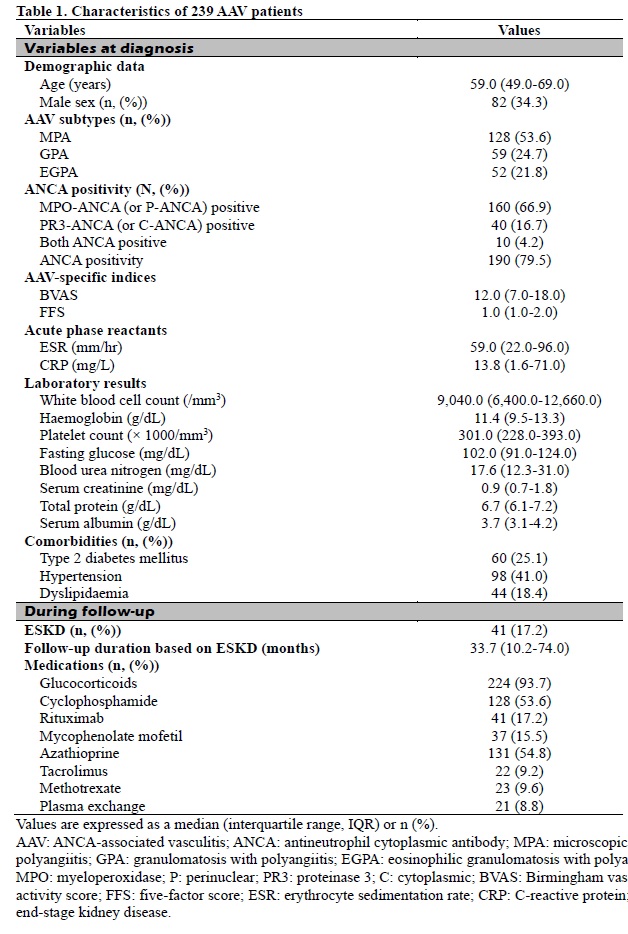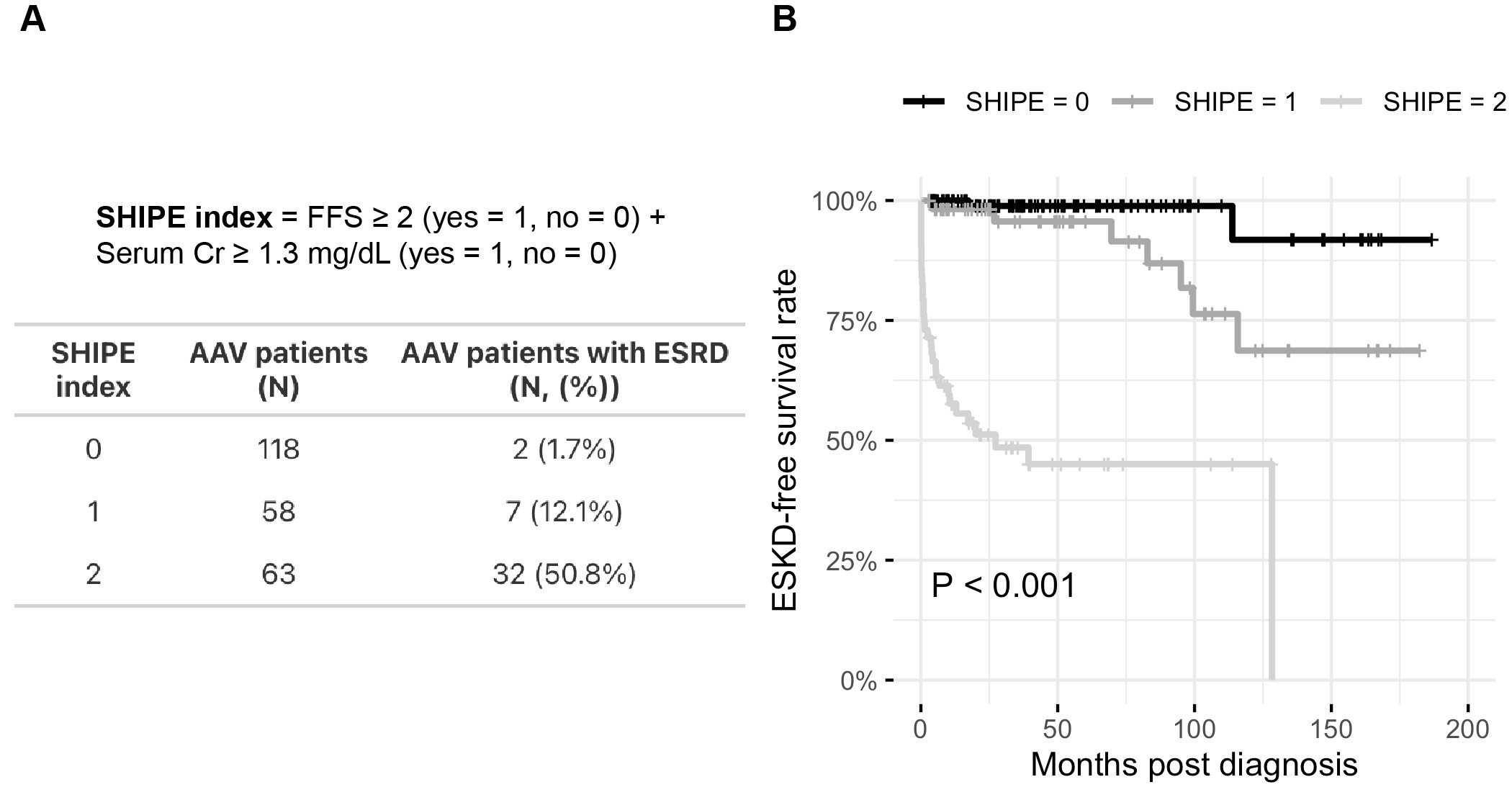Poster Session
Vasculitis
Poster Session C
Session: (2504–2523) Vasculitis – ANCA-Associated Poster III
2511: The SHIPE index: A tertile-based approach to predict end-stage kidney disease in ANCA-associated vasculitis
Tuesday, October 28, 2025
10:30 AM - 12:30 PM Central Time
Location: Hall F1

Table 1. Characteristics of 239 AAV patients

Figure 1. The SHIPE index for AAV patients

Figure 2. Comparison of three predictors — FFS, serum creatinine, and SHIPE index — for ESKD
- HD
HYUNSUE DO, MD
Kangwon national university hospital
Seoul, South KoreaDisclosure(s): No financial relationships with ineligible companies to disclose
Abstract Poster Presenter(s)
Background/Purpose: This study aimed to develop a simple, robust, and ethnoregion-specific index for predicting progression to end-stage kidney disease (ESKD) in Korean patients with antineutrophil cytoplasmic antibody (ANCA)-associated vasculitis (AAV).
Methods: Baseline data from 239 Korean patients with AAV enrolled in a tertiary hospital cohort were analyzed to identify independent predictors of ESKD using univariable and multivariable Cox proportional hazards models. The SHIPE index was constructed by summing the highest tertiles of the identified predictors: Five-Factor Score (FFS ≥2) and serum creatinine (≥1.3 mg/dL), with 1 point assigned to each criterion met. Cumulative ESKD-free survival rates across SHIPE index scores were compared using Kaplan-Meier analysis.
Results: A SHIPE index score of 2 was significantly associated with lower cumulative ESKD-free survival rate compared to scores of 0 or 1 (P< 0.001). By integrating two independent predictors, the SHIPE index provides a simple yet effective tool for risk stratification, demonstrating greater robustness against variability in single predictors such as serum creatinine. This index demonstrated clinical utility, providing a straightforward method for identifying high-risk patients in real-world settings.
Conclusion: The SHIPE index is a novel, robust, and convenient tool for predicting ESKD progression in Korean patients with AAV. This study introduces a practical framework for developing tailored prediction indices that can be adapted for diverse ethnic and regional populations. Its simplicity and practical applicability make it well-suited for routine clinical use. Future prospective studies are needed to validate the SHIPE index in larger, multi-ethnic cohorts and ensure its broader applicability.

